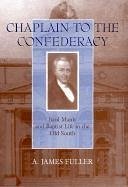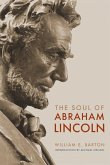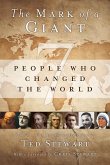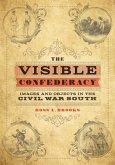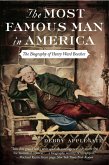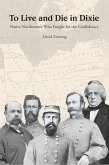As Jefferson Davis paraded through the streets of Montgomery, Alabama, to take the oath of office as the first president of the Confederate States of America, two men accompanied him in his open coach: Alexander Stephens -- the vice-president-elect -- and Basil Manly. A noted southern Baptist preacher, educator, and the most ardent secessionist of them all, Manly had been selected to serve as chaplain to the provisional Confederate Congress and opened the inaugural ceremonies with a prayer. For nearly thirty years, Manly had worked devotedly for the establishment of a southern nation, and in 1861, his sermons and public prayers before church and congress lent moral and religious legitimacy to the new Confederate government. In this, the first full biography of Manly, A. James Fuller analyzes the life and career of this working minister, illustrating the central role of religion in the formation of the Confederacy. Born in 1798, Manly was one of the leading ministers and educators of the nineteenth century. He headed several large urban congregations in South Carolina and Alabama, helped to spearhead the secession of the Southern Baptist Convention from the national denominational organizations in 1845, and played a critical part in the development of Baptist education. He was instrumental in founding several southern schools -- including Furman University and the Southern Baptist Theological Seminary -- and was himself a university administrator and teacher, spending eighteen years as the president of the University of Alabama in Tuscaloosa. Fuller argues that Manly brought together the various themes of the broader culture into his own conception of Christian gentility, includinghis actions as the official chaplain to the Confederate government. In Manly's eyes, the Confederacy was the incarnation of God's plan for the South. A planter, slaveholder, and staunch defender of the peculiar institution, he hoped to temper the brutality of bondage by promoting the Christian duties of masters as well as slaves. In practice he tried to reconcile the traditions of honor and evangelical virtue, the contradictions of white liberty and black slavery, the ideals of the individual and the need for community in matters both sacred and secular. On a more personal level, he was also patriarch of his family and sought to balance the traditions of masculine authority with changing notions of affection and sentimentalism. More than an intimate portrait of an active pastor, Fuller's splendid biography offers firsthand accounts of neglected events in Baptist denominational history, new interpretations of important religious revivals, and a case study in how evangelicals moved from the fringe to the mainstream of American society. Chaplain to the Confederacy makes a considerable contribution to the literature on southern culture, shedding new light on religion, politics, economics, slavery, family life, education, and reform in nineteenth-century America.
Hinweis: Dieser Artikel kann nur an eine deutsche Lieferadresse ausgeliefert werden.
Hinweis: Dieser Artikel kann nur an eine deutsche Lieferadresse ausgeliefert werden.

